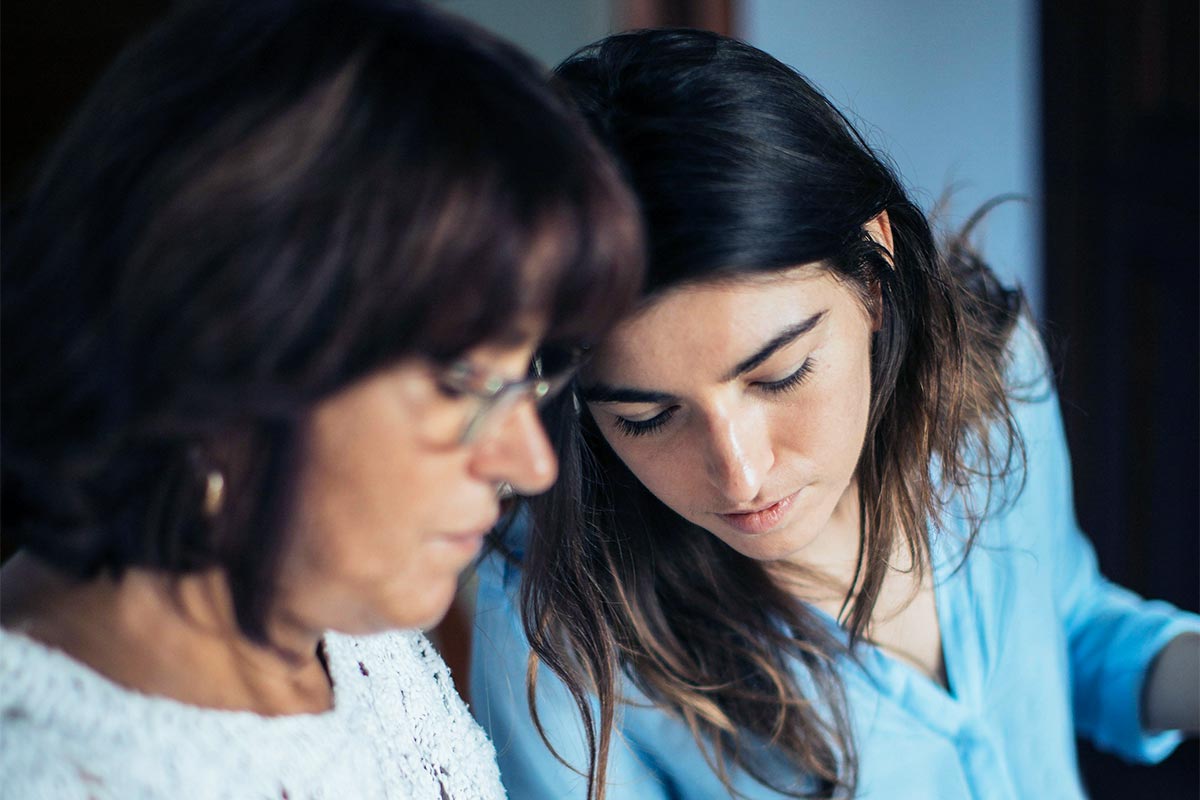We Accept Most Insurance. Please Call to Verify Yours.






![]()







Today, an estimated 9.7 million young adults, 27.8% people between the age of 18 and 25, struggle with substance use disorders. It’s increasingly common for young adults to start using and experimenting with substances, especially as they move into college, live on their own for the first time, and have space to experiment. As a result, more young adults use and are addicted to drugs than any other demographic. Today’s young adults also have more problems with stress and mental health problems than any generation before, and that means increasing risks and vulnerabilities to substance abuse and addiction. If that’s your young adult, you obviously want to help. Leaving a substance use disorder alone can mean downward spiraling and things getting worse.
While “traditionally” parents have been encouraged to opt for tough love and letting their kids hit rock bottom, research shows this tactic not only doesn’t work, but it’s also actively harmful. Getting your young adult into help and treatment is the way to go. But, how do you get your young adult to accept help for addiction? Especially when they have college, work, or other responsibilities?
That can be a difficult thing to do because you can’t make anyone choose treatment.
The first step to getting someone into treatment and help is to make help about them. That means being supportive around your young adult’s life, choices, and what they want. It also means supporting them in other ways like:
Some of those steps can seem extremely big, especially if you’re not used to accepting that drug use will happen. At the same time, if you don’t, your young adult will take drugs or drink alcohol anyway but in a less safe environment. In addition, they’ll have to hide it from you and will further alienate themselves from you, making it even harder for you to get them into treatment.
It’s important to take an approach of nonjudgement wherever you can. That can be a lot harder than it sounds. For example, you have to not only know that addiction is a mental health disorder, you have to act it. That means:

Practicing nonjudgement can conflict with a lot of what we are taught about addiction from a social perspective. It can mean flying in the face of social norms, ignoring the social stigma and guilt around addiction, and reworking a lot of preexisting notions around what it means to be addicted. But, putting in that effort will mean you can better connect with your young adult and give them the empathy and understanding they need to want to get help.


Talking to a young adult about their own medical care can be a tricky thing. On the one hand, they are your child and you know what’s best for them. On the other, they are an adult and need agency and control of themselves in order to feel comfortable.
The first instinct for many parents facing a young adult with an addiction is to try force them into treatment. At the same time, they can say no. That’s even harder if they no longer live at home or are in a high stress environment like college where they might be surrounded by drug use.
Your best option is to try to create options. For example:
“I’d like to talk about you going to treatment. I’d like that to be now, but I need you to choose it, so if it’s not right now, that’s okay, but I’d like to start the discussion”
The hardest part of that will be accepting that “not right now” is an okay answer. That’s also extremely true when addiction is obviously getting in the way of your child’s life. At the same time, waiting until they are ready can do a lot for ensuring they are motivated and invested in recovery.
It can also look like:
“You’re going to have to go to therapy or treatment eventually if you want to graduate. You can get help from college with that. But you can also sit down with me and figure out what you want treatment to look like and if you’re ready for it now. Then we can maybe pick a treatment center together so you can choose what you want your future to look like”
The goal is to treat your young adult like an adult with agency and control over their own body. They aren’t a child anymore, you’re not punishing them and sending them off to their room, you’re trying to actively involve them in decisions about their own mental health and their own future.
Getting a young adult into treatment is tricky. On the one hand, addicts will often deny having a problem, will lie, and will manipulate to get their way. Waiting until they are ready can feel like letting them off the hook and allowing them to self-harm. Eventually, the best option is normally to work with your young adult, to treat them like an adult, to offer options and respect, and to treat addiction like a disease or health disorder.
Addiction can ruin your child’s life. Being there for them, offering support, and working to get them into treatment and recovery a their own pace will ensure they get control of their life back. At the same time, you can’t force it. All you can do is be there, offer choices, and offer support, and the rest is up to them. Good luck.

If you or a loved one is seeking help for substance abuse or alcoholism, contact us at Stairway Resource Center now. Stairway Resource Center features a 60 to 90-day outpatient program that takes place in an engaging and supportive community setting. We also offer dual diagnosis treatment and daily group and individual therapy for our clients, in addition to fun community-based events and activities that assist in achieving long-term sobriety.

Medical Director
Michael D. Stone, MD has been in practice for over 30 years. He graduated from Medical School in 1986 and attended LA County/USC Medical Center Residency in the field of Emergency Medicine. He is a practicing E.R. doctor at 2 hospitals in the Southern California area. Dr. Stone also has a Specialty in Chemical Dependency and Addiction Medicine for 22 years. He is the Medical Director of numerous Residential and Outpatient Facilities in the Los Angeles area. Dr. Stone’s interests outside of medicine include a commercial pilot, all outdoor activities including skiing, fishing and boating.